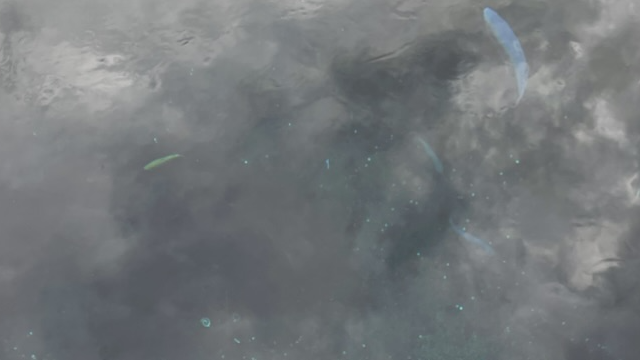肯定文 否定文 疑問文 疑問詞 命令文 感嘆文

聖女の護衛は兄と言葉遊びをする
肯定文

Cyril
I am Letitia’s bodyguard.
(私はレティシアの護衛です。)

William
He is a Letitia’s bodyguard.
(彼はレティシアの護衛です。)

Cyril
I like cats.
(私はネコが好きです。)

William
He likes cats.
(彼はネコが好きです。)
否定文

Cyril
I am Letitia’s bodyguard.
(私はレティシアの護衛です。)

William
I am not Letitia’s bodyguard.
(私はレティシアの護衛ではありません。)
本文
William : ”He is a Letitia's bodyguard.”
Cyril : “He is not a Letitia's bodyguard.”
Cyril : “I like cats.”
William : ”I do not[don't] like cats.”
William : “He likes cats.”
Cyril : “He does not[doesn't] like cats.”
翻訳
ウィリアム:「彼はレティシアの護衛です。」
シリル :「彼はレティシアの護衛ではありません。」
シリル :「私はネコが好きです。」
ウィリアム:「私はネコが好きではありません。」
ウィリアム:「彼はネコが好きです。」
シリル :「彼はネコが好きではありません。」
否定文
| I am not 〜. | I’m not 〜. | |
| You are not 〜. | You’re not 〜. | You aren’t 〜. |
| We are not 〜. | We’re not 〜. | We aren’t 〜. |
| They are not 〜. | They’re not 〜. | They aren’t 〜. |
| He is not 〜. | He’s not 〜. | He isn’t 〜. |
| She is not 〜. | She’s not 〜. | She isn’t 〜. |
| It is not 〜. | It’s not 〜. | It isn’t 〜. |
| I do not drink 〜. | ||
| You do not[don’t] drink 〜. | ||
| We do not[don’t] drink 〜. | ||
| They do not[don’t] drink 〜. | ||
| He does not[doesn’t] drink 〜. | ||
| She does not[doesn’t] drink 〜. | ||
| It does not[doesn’t] drink 〜. |
疑問文
You are Letitia’s bodyguard.
あなたは レティシアの 護衛 です。
Are you Letitia’s bodyguard ?
あなたは レティシアの 護衛 ですか。
本文
William : "Is he your bodyguard ?"
Letitia : "Yes, he is. He is my bodyguard."
Cyril : "That is my cat."
Letitia : "Is that a cat ?"
William : "No, it isn't. That is a dog. His cat is that one."
Letitia : "That white cat ?"
William : "Yes, it is. His cat is white."
William : "Cyril likes cats."
Letitia : "Do you like cats ?"
William : "No, I do not[don't]."
Letitia : "Do you like books ?"
William : "Yes, I do."
Letitia : "Does Cyril like coffee ?"
William : "Yes, he does."
Letitia : "Does he like dogs ?"
William : "No, he does not[doesn't]."
翻訳
ウィリアム:「彼はあなたの護衛ですか?」
レティシア:「はい。彼は私の護衛です。」
シリル :「あれは僕の猫です。」
レティシア:「あれは猫ですか。」
ウィリアム:「いいえ。あれは犬です。彼の猫はあの子です。」
レティシア:「あの白い猫ですか。」
ウィリアム:「はい。彼の猫は白いです。」
ウィリアム:「シリルは猫が好きです。」
レティシア:「あなたは猫が好きですか。」
ウィリアム:「いいえ。」
レティシア:「あなたは本が好きですか。」
ウィリアム:「はい。」
レティシア:「シリルはコーヒーが好きですか。」
ウィリアム:「はい。」
レティシア:「彼は犬が好きですか。」
ウィリアム:「いいえ。」
疑問文
| Am I 〜? | Yes, you are. / No, you aren’t, |
| Are you 〜? | Yes, I am. / No, I’m not. |
| Are we 〜? | Yes, we are. / No, we aren’t. |
| Are they 〜? | Yes, they are. / No, they aren’t. |
| Is he 〜? | Yes, he is. / No, he isn’t. |
| Is she 〜? | Yes, she is. / No, she isn’t. |
| Is it 〜? | Yes, it is. / No, it isn’t. |
| Do I drink 〜? | |
| Do you drink 〜? | Yes, I do. / No, I don’t. |
| Do we drink 〜? | Yes, we do. / No, we don’t. |
| Do they drink 〜? | Yes, they do. / No, they don’t. |
| Does he drink 〜? | Yes, he does. / No, he doesn’t. |
| Does she drink 〜? | Yes, she does. / No, she doesn’t. |
| Does it drink 〜? | Yes, it does. / No, it doesn’t. |
付加疑問
Letitia looks happy, doesn’t she?
レティシアは嬉しそうに見えますよね。
疑問詞
What is that ?
あれは 何 ですか。
It’s my cat.
私の 猫 です。
本文
Cyril : "Do you have a book?"
Letitia : "No, I don't. Whose book are you looking for?"
Cyril : "My brother's."
Cyril : "What Do you have?"
Letitia : "I have a plant."
Cyril : "Do you like plants?"
Letitia : "Yes, I do."
Cyril : "What plants do you like?"
Letitia : "I like house plants."
Letitia : "When is the festival?"
Cyril : "Next weekend."
Letitia : "What time is it?"
William : "It's six thirty PM."
Cyril : "What day is it today?"
Letitia : "It's Wednesday."
Letitia : "Where should we meet?"
Cyril : "My place or yours?"
Letitia : "Your place. Where is it?"
Cyril : "Follow me. It's really close."
Letitia : "Which one is your place?"
Cyril : "This way."
Letitia : "Who's that person?"
Cyril : "My brother."
Letitia : "Do you live together?"
Cyril : "My brother lives in a dorm[dormitory]. Today's the day he comes home."
Letitia : "How is your brother?"
Cyril : "He's busy."
William : "How is Cyril’s work?"
Letitia : "He's a strong bodyguard."
Cyril : "Thank you."
Cyril : "William has a lot of books."
Letitia : "What kind of books does he have?"
Cyril : "He has books for research."
William : "I'm research."
William : "What are these boxes?"
Cyril : "These are my father's souvenirs. Please open these boxes."
William : "Which country are these souvenirs from?"
Cyril : "Selesnaya country. Souvenir from several remote islands."
翻訳
シリル :「あなたは本を持っていますか。」
レティシア:「いいえ。誰の本を探しているのですか」
シリル :「僕の兄のだよ。」
シリル :「何を持っていますか。」
レティシア:「植物を持っています。」
シリル :「あなたは植物が好きですか。」
レティシア:「はい。」
シリル :「何の植物が好きですか。」
レティシア:「私は観葉植物が好きです。」
レティシア:「お祭りはいつですか。」
シリル :「来週末です。」
レティシア:「何時にありますか。」
シリル :「午後6時30分です。」
レティシア:「今日は何曜日ですか。」
シリル :「水曜日です。」
レティシア:「待ち合わせはどこにしますか。」
シリル :「僕の家とあなたの家のどちらにしますか。」
レティシア:「あなたの家にします。あなたの家はどこですか。」
シリル :「ついてきて。すぐ近くだから。」
レティシア:「あなたの家はどれですか。」
シリル :「こっちだよ。」
レティシア:「あの人は誰ですか。」
シリル :「僕の兄です。」
レティシア:「一緒に住んでいますか。」
シリル :「兄は寮に入っているよ。今日は家に来る日。」
レティシア:「お兄さんは元気ですか。」
シリル :「彼は忙しいです。」
ウィリアム:「シリルの仕事はどうですか。」
レティシア:「彼は強い護衛です。」
シリル :「ありがとう。」
シリル :「ウィリアムはたくさんの本を持っています。」
レティシア:「彼はどんな種類の本を持っていますか。」
シリル :「彼は研究用の本を持っています。」
ウィリアム:「俺は研究をしています。」
ウィリアム:「これらの箱は何ですか。」
シリル :「これらは父の土産です。これらの箱を開けてください。」
ウィリアム:「これらの土産はどこの国のものですか。」
シリル :「セレスナーヤ国です。いくつかの離島土産です。」
疑問詞
| What is 〜? | 〜は何ですか。 |
| What time 〜? | 〜は何時ですか。 |
| What day 〜? | 〜は何曜日ですか。 |
| Do you have a book? | 植物を持っていますか。 |
| What Do you have? | 何を持っていますか。 |
| Do you like plants? | 植物が好きですか。 |
| What plants do you like? | 何の植物が好きですか。 |
| Who is 〜? | 〜は誰ですか。 |
| When is 〜? | 〜はいつですか。 |
| Where is 〜? | 〜はどこですか。 |
| Which is 〜? | 〜はどれですか。 |
| How is 〜? | 〜はどうですか。 |
命令文
Cyril : “Let’s go see my brother. Be quiet. and Don’t leave me.”
本文
Cyril : "Let's go see my brother. Be quiet. and Don't leave me."
Cyril : "Long time no see. How are you?"
William : "I'm fine."
Cyril : "That's good to hear."
William : "And this young lady?"
Cyril : "This is Letitia. She's the person I'm escorting."
William : "Nice to meet you."
Letitia : "Likewise, nice to meet you."
感嘆文
How+<形容詞or副詞>+主語+動詞!
形容詞
How cute this cat is!
=イコール
How cute!
この猫はなんて可愛いのでしょう。
副詞
How beautifully he cries!
彼はなんて美しく泣くのでしょう。
what(a[an])+形容詞+名詞+主語+動詞!
What a strong man he is!
=イコール
What a strong man!
彼はなんて強い男性なのでしょう。
コメント